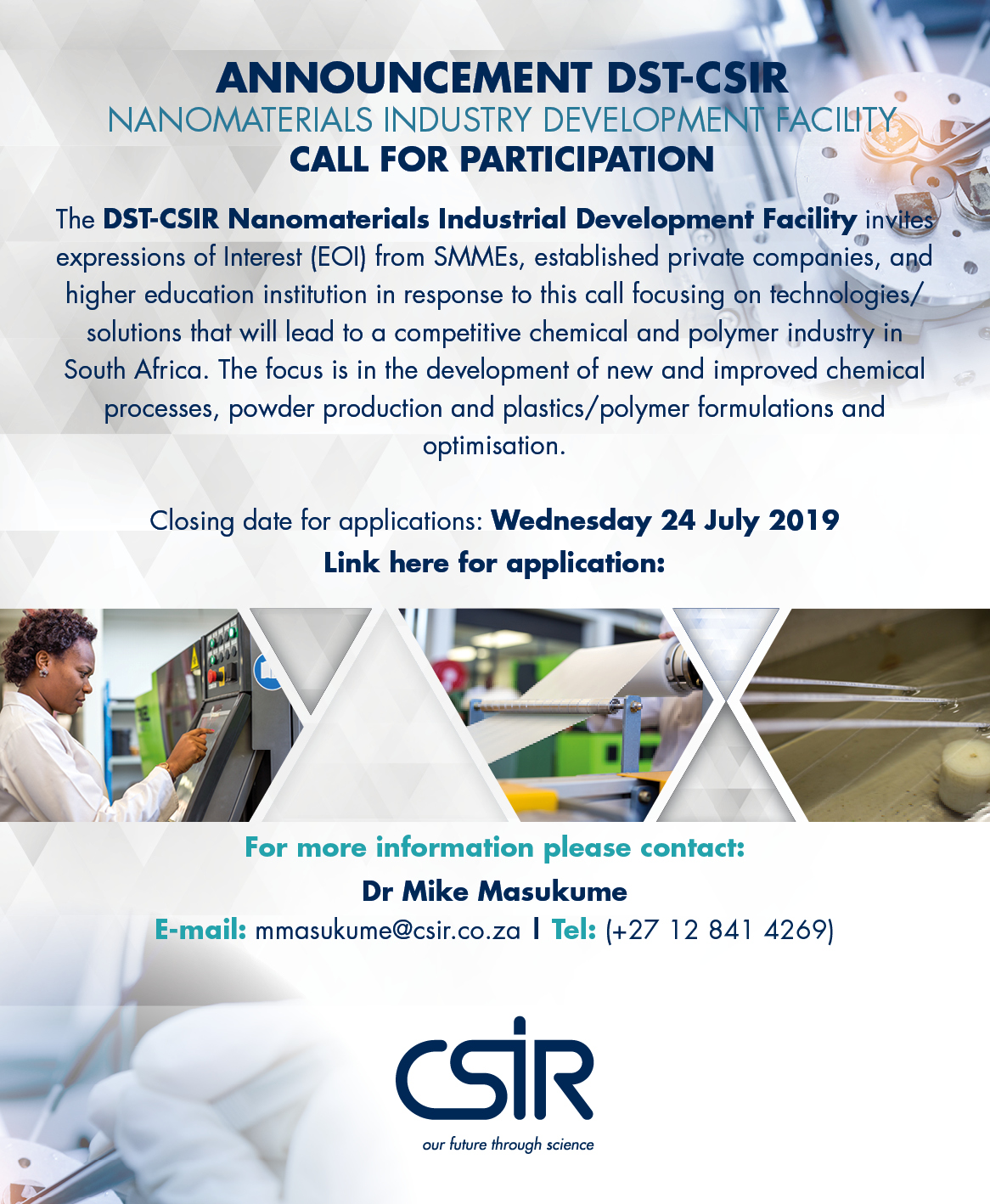News
The leakage of plastic waste into the environment, including the marine environment, is an issue of global concern. In view of the symptom of growing consumption of single-use plastic combined with weak waste collection, recycling and disposal systems, sustainable solutions are required.
Research by Jambeck et al (2015) ranked South Africa 11th in terms of the mass of mismanaged plastic waste by countries globally in 2010. Media statement
The CSIR recently announced the signing of a three-year, multimillion-rand contract with Transnet National Ports Authority (TNPA) for the maintenance of existing Datawell Waveriders and wind stations at all eight ports.
The two organisations hailed the partnership as a significant step towards improving the safety of shipping and port operations. According to the agreement, CSIR technicians will service and maintain existing wind monitoring and water level recording stations regularly to ensure good, continuous and reliable data.
Dr Happy Marumo Sithole, Centre Manager for the National Integrated Cyberinfrastructure Initiative (NICIS), has won the Management Award at the National Science and Technology Forum (NSTF)-South32 Awards. He was also a finalist for the Data for Research Award. Dubbed the ‘science oscars’, the NSTF awards were established in 1988 to recognise outstanding contributions to science, engineering and technology (SET) and innovation in South Africa. The glitzy event took place on 27 June 2019 at the Emperors Palace Conference Centre.
Media briefing: 26/06/2019
Young researchers from CSIR briefs media on the impact of, opportunities available and future skills required by young people to thrive in the rise of the fourth industrial revolution (4IR).
The briefing focus on how South African youth can seize the opportunities presented by the FIR, such as machine learning, robotics and additive manufacturing.

The CSIR is pleased to announce the appointment of Mr Sipho Mbhokota, as the new Executive Manager for CSIR Defence and Security. CSIR Defence and Security is a key strategic focus area that seeks to build resilient defence and security capabilities for South Africa to ensure secure borders and the safety of citizens.
CSIR is proud to be ranked top most attractive employment destination by most students and professionals in the category of natural science.
Branding firm, Universum, recently released its Most Attractive Employer rankings for 2019. According to the survey, 14.64% of students and 13.35% of South African professionals in the natural sciences category have a strong interest in working for the CSIR. In this category, the CSIR rose above the competition when ranked with companies such as Sasol, AB Inbev, Unilever, Google, Discovery and the Agricultural Research Council.
With challenges such as access to finance, markets and infrastructure that support new business, the small medium and micro enterprise (SMME) landscape in South Africa has experienced teething problems, which have made it difficult for SMMEs to succeed. With this in mind, the CSIR’s Biomanufacturing Industry Development Centre (BIDC) hosted an Accelerator networking event for SMMEs in the biomanufacturing space, on 24 May 2019.
Call for Innovative Solutions for the provision of technology and product support for Capital Equipment in the Mining Sector (Yellow Goods) and Rail
Proposals are hereby invited to companies to provide product development support and innovation to manufacturing companies for yellow good (capital equipment), mining innovation and rail infrastructure and components that must be localised for the respective sectors.
Download document here.


